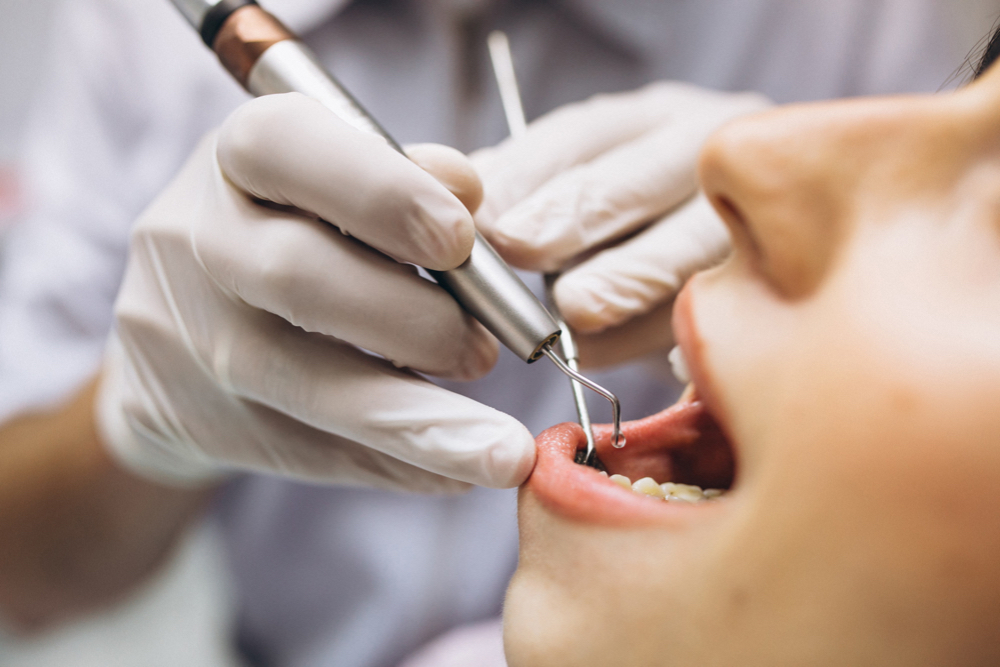Halitosis is in fact the learned name to designate a problem that everyone knows very well: bad breath. If it is normal to have a “morning breath” or a strong smell that lingers after eating certain foods, persistent bad breath is a condition that must be taken seriously.
Dr. Normand Bach’s team explains what halitosis is and the many causes of bad breath, and then gives you some tips on how to get rid of it.
What Causes Bad Breath
To start with, everyone knows that foods like garlic and onions cause temporary bad breath; these foods actually release their odor into the lungs when digested. Coffee, alcohol, tobacco and cheeses are other products that affect breath freshness.
In addition to temporary bad breath, it is usually an imbalance of bacteria in the mouth that causes unpleasant odors. In particular, some bacteria do not need oxygen to reproduce and will produce compounds such as hydrogen sulfide or methyl mercaptan.
In the vast majority of cases, about 85%, poor oral hygiene is the cause. Infectious diseases such as tooth decay or periodontal disease will also cause an unpleasant odor.
Deep cavities may lead to abscesses and swellings with particularly foul-smelling pus. Any presence of lesions or ulcers is likely to produce the same effect.
Similarly, dry mouth can lead to halitosis, as saliva is an essential component of the bacterial balance in the mouth.
This is the reason why people often have bad breath in the morning: saliva production decreases during the night. The same thing usually happens to those who fast; there is no need to worry in these cases!
However, dry mouth can be caused by certain medications, including:
- High blood pressure medication
- Anti-anxiety drugs
- Antidepressants
- Antihistamines
Although the causes of halitosis are most often oral, other factors can come into play. This is the case for certain digestive problems such as gastric reflux or inflammation of the esophagus, for example.
The causes can also be respiratory or come from certain diseases such as diabetes or kidney disorders.
Finally, hormonal imbalances often affect oral health, and this includes breath. Pregnancy, menopause and even ovulation can sometimes be the cause.

Halitosis: How to Address This Issue
To get rid of halitosis, it is first necessary to identify the cause. Since most of the time it is a question of bad oral hygiene, changing your habits will often be the key!
Before looking any further, start by making sure you follow the rules of good oral hygiene: brush your teeth twice a day. Make sure you floss and brush your tongue. Antiseptic mouthwash may also be recommended.
We know that orthodontic patients can have difficulties with their hygiene routine, especially when they wear traditional appliances. If this is your case, don’t hesitate to ask Dr. Normand Bach or your dental hygienist for advice!
Of course, a visit to your dentist will allow you to detect any oral causes if bad breath persists. Treating a cavity or periodontal disease can make all the difference in the world and is necessary for your health.
Bad breath can certainly be covered up with things like chewing gum, mints or sprays. These are all good ways to get fresh breath. However, if this problem persists or becomes frequent, finding the source and treating it is vital.
If the origin is not oral, the general practitioner should be consulted. In any case, halitosis is a symptom to be taken seriously: not only annoying, it can become a real social handicap in the long run.
Orthodontics for a Healthy Mouth!
Did you know that orthodontic treatments promote better oral health? Indeed, misaligned teeth can create areas that are difficult or impossible to reach with a brush or floss.
Orthodontics can help you maintain good hygiene and preserve your teeth – not to mention the fresh breath that comes with a clean mouth.
Don’t hesitate to ask for a consultation to find out if orthodontics is right for you. Dr. Normand Bach and his team in the heart of Montréal are ready to assist you!